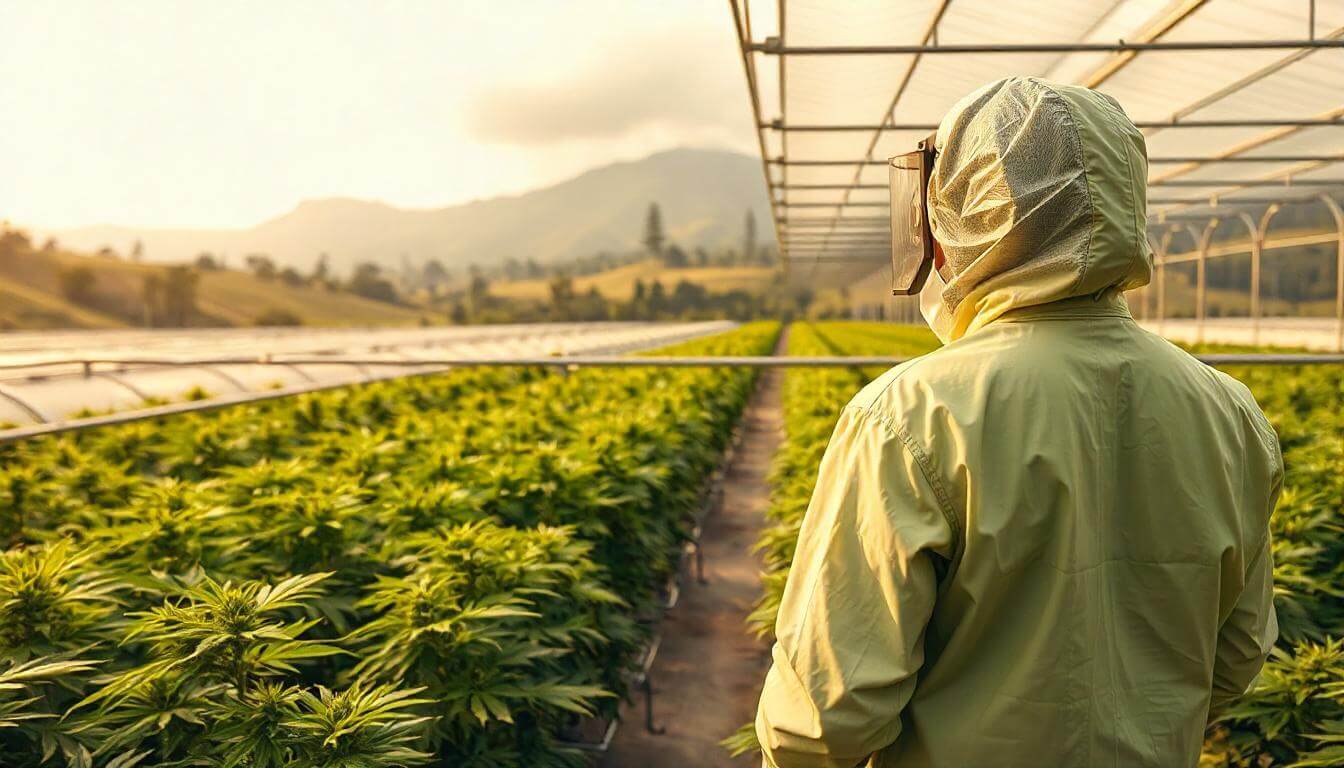Rwanda is poised to become a significant player in the global medicinal cannabis industry. The establishment of a cannabis production plant in Musanze, overseen by King Kong Organics Rwanda (KKOG), marks the country’s strategic move to capitalize on the rising demand for therapeutic cannabis products.
Cannabis investment in Rwanda: A budding industry
In 2021, the Rwandan government granted KKOG Global’s local subsidiary a five-year license to cultivate, extract, and export medicinal cannabis. This venture has involved an investment of $10 million in machinery, infrastructure, and cannabis seeds. The factory in Musanze is expected to be fully operational by September 2024.
According to KKOG’s CEO Rene Joseph, completing 70% of the facility’s construction underscores the commitment to meeting the projected timeline. Despite delays caused by the need for new access routes, this plant will significantly contribute to Rwanda’s economic development once it’s running.
The economic impact of legalizing cannabis
Legalizing medicinal cannabis in Rwanda aligns with global market trends and promises substantial economic returns. Projections suggest that the worldwide cannabis market could surge from $57.18 billion in 2023 to $444.34 billion by 2030. Factors driving this growth include the increasing demand for medicinal cannabis, particularly for pain management.
KKOG Rwanda plans to produce around 5,000 kilograms of cannabis per hectare, leveraging the country’s fertile land and favorable climate. This production capacity highlights Rwanda’s potential to generate significant revenue, far surpassing other agricultural exports like horticultural flowers.
Opportunities for foreign investment
Rwanda is actively seeking foreign investments in its budding cannabis sector. The government has designated 35 hectares in Musanze for cannabis farming, allocating plots to various investors, including KKOG Rwanda. Each investor oversees five hectares, while ten additional hectares are set aside for communal and security purposes.
This strategic focus aims to boost export revenues and integrate Rwanda into the global supply chain for medicinal cannabis. In addition to economic benefits, the industry is expected to create numerous skilled jobs in agriculture, extraction, and distillation processes.
Commitment to local employment
KKOG Rwanda emphasizes employing local workers, thus ensuring knowledge transfer and expertise enhancement within the Rwandan workforce. Such human capital investments are vital for the long-term sustainability of the nation’s cannabis sector.
Furthermore, providing specialized training programs can enhance the skills of local employees, preparing them for roles in high-tech cultivation and extraction techniques often required in the medicinal cannabis industry.
Global market growth and strategic positioning
The international medicinal cannabis market is expanding quickly, with products like cannabis oils and CBD-based medicines gaining widespread acceptance. 2022 sales reached $45 billion, and forecasts predict exceeding $101 billion by 2026. This growing demand demonstrates the increasing acceptance of cannabis-based medications globally.
Strategically located in East Africa, Rwanda offers attractive conditions for investors. Despite high initial production costs owing to regional technology limitations, the potential profits make the investment viable. KKOG’s leadership remains optimistic about fostering partnerships with the Rwandan government to enhance the local cannabis sector’s growth.
Navigating regulatory challenges
Despite promising prospects, the cannabis industry in Rwanda faces stringent regulations. Ensuring compliance while maximizing economic benefits will be crucial for sustained success.
Rene Joseph, KKOG’s CEO, expressed confidence in navigating these regulatory challenges through collaboration with governmental partners. Their unwavering commitment signals a long-term vision for the cannabis industry in Rwanda.
Adopting best practices from established markets like Canada and the Netherlands could also help streamline regulatory processes and ensure product quality and safety.





